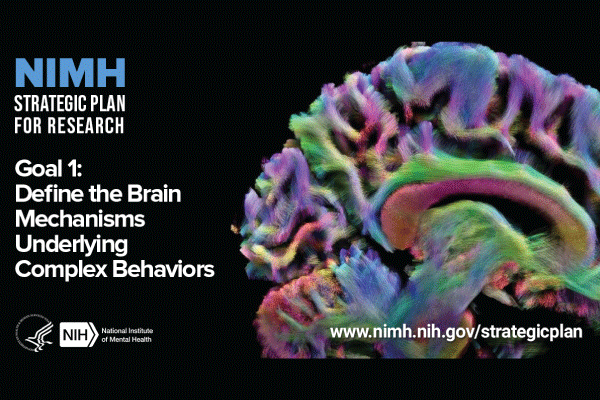Government Relations
National Institute of Mental Health Unveils New Strategic Plan
Research goals over the next five years to focus on behavior, illness trajectories

The National Institute of Mental Health (NIMH), one of the largest funders of psychological science research at the National Institutes of Health, has unveiled a new strategic plan that outlines the goals and objectives that the institute will follow in its funding decisions for research over the next 5 years.
Finalized following a public comment period, the strategic plan centers on four high-level goals:
1. Define the brain mechanisms underlying complex behavior.
2. Examine mental illness trajectories across the lifespan.
3. Strive for prevention and cures.
4. Strengthen the public health impact of NIMH-supported research.
Stemming from each goal are objectives that further clarify and provide direction for the intended outcomes of each section of the plan. NIMH considers the strategic plan a living document that will be updated as scientific knowledge evolves and new discoveries are made. “Studies of the origins of mental illnesses suggest that a combination of causes—genetic, environmental, social, and psychological—act on the brain through a complex web of interactions, resulting in a set of heterogeneous and overlapping illnesses,” said NIMH Director Joshua Gordon in his foreword. “Deciphering the meaning and mechanisms behind these causes remains a daunting task.”
The inclusion of behavioral science throughout the strategic plan’s goals and objectives is likely to provide future research funding opportunities for psychological science at NIMH. This emphasis also provides visibility for the important role of psychological science and behavioral science more broadly in understanding and treating mental illnesses. Importantly, the plan features research objectives that have been broadened to include behavioral, environmental, and psychosocial factors, as well as acknowledging that research on environment and experience is important for understanding the genomic and non-genomic factors associated with mental illness (Objective 1.2 of Goal 1).
APS continues to advocate for the representation of psychological science throughout all the institutes at NIH. We will communicate relevant funding opportunities and policy changes associated with this plan through the APS Federal Research, Funding, and Policy page (psychologicalscience.org/policy).
For the first time, NIMH’s strategic plan is accompanied by an interactive website. Read messages from the director of the institute, view an overview of the plan, and explore crosscutting themes the institute will pursue.





APS regularly opens certain online articles for discussion on our website. Effective February 2021, you must be a logged-in APS member to post comments. By posting a comment, you agree to our Community Guidelines and the display of your profile information, including your name and affiliation. Any opinions, findings, conclusions, or recommendations present in article comments are those of the writers and do not necessarily reflect the views of APS or the article’s author. For more information, please see our Community Guidelines.
Please login with your APS account to comment.